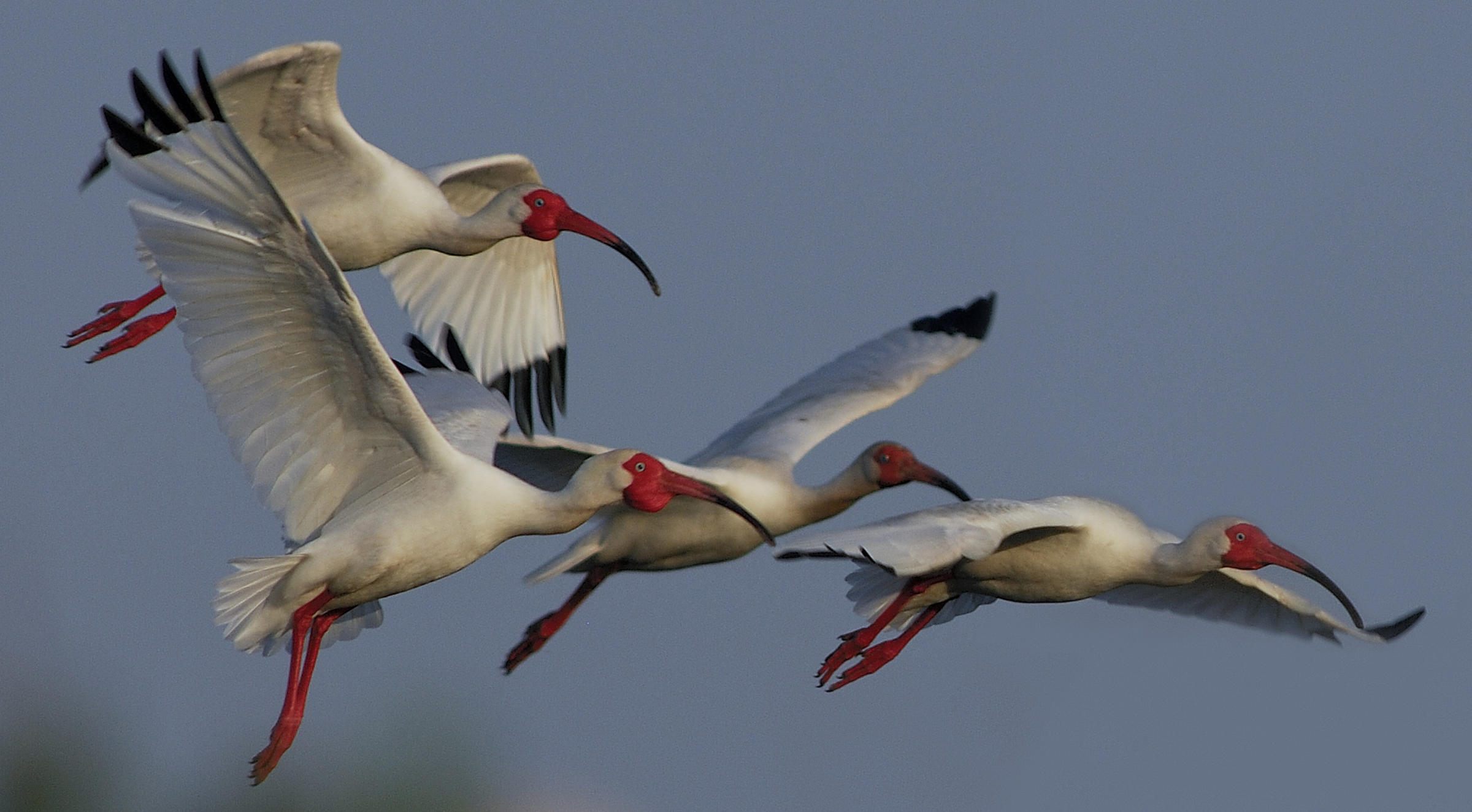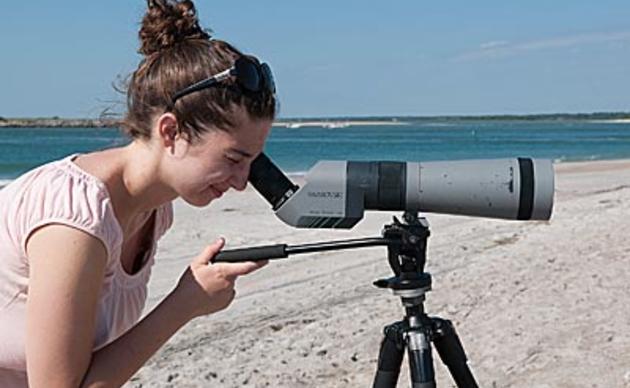With its long, down-curved bill and bright white plumage, the White Ibis is easily identifiable. White Ibis may be seen foraging on lawns or neighborhood ponds, especially in August after nesting season concludes, but marshes, swamps and other wetlands are their native habitat. White Ibis are highly social nesters, and they may gather by the thousands to nest in large colonies from April to July.
White Ibis roam over large areas and colonize new areas when they find suitable nesting habitat. If they nest near saltwater, they may travel 30 miles or more to find freshwater foraging habitat when they are raising young chicks. They use their pink bills to probe for food, foraging mainly by touch. Their favorite foods are crayfish and crabs, but they also eat fish, insects and worms.
White Ibis were first recorded breeding in North Carolina in 1889, but they were not found nesting in large numbers until 1950 when more than 1,000 were discovered breeding near Lumberton in Warwick Mill Bay, a freshwater wetland. Then, in the early 1960s, they began to appear on Battery Island, an estuarine island near Southport. Numbers grew every year, and now as many as 14,000 pairs nest on the island in a single season, making Battery Island, which Audubon North Carolina manages, globally significant to maintaining their population.
White Ibis are abundant in North Carolina, making them a responsibility species for Audubon. It’s important to maintain safe, high quality nesting sites and other habitats to ensure their populations remain healthy.
Important Bird Areas (IBAs) designate areas that are critical to bird populations in North Carolina. The following IBAs are important to White Ibis as nesting sites. Sites with an asterisk indicate an Audubon-managed site.
- Battery Island*
- Hog Island
- Morgan Island
- North Pelican Island*
- Old House Channel Island C
- Roanoke Sound Island
Audubon North Carolina’s staff and volunteers are working to protect White Ibis on Battery Island and elsewhere. Learn more about our conservation work for the White Ibis on the NC Audubon Blog!
How you can help, right now
Donate to Audubon
Help secure the future for birds at risk from climate change, habitat loss and other threats. Your support will power our science, education, advocacy and on-the-ground conservation efforts.
Sign Up For Our eNewsletter
Keep up-to-date on all that happens with Audubon North Carolina's research, events and volunteer opportunities.





